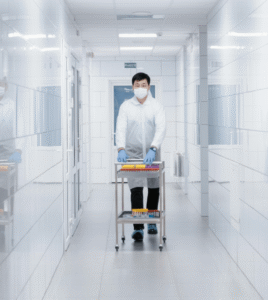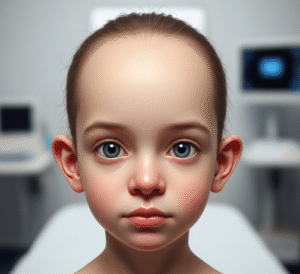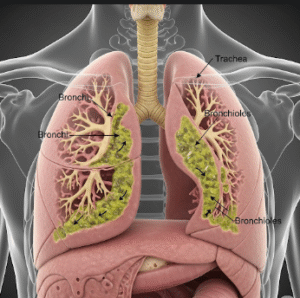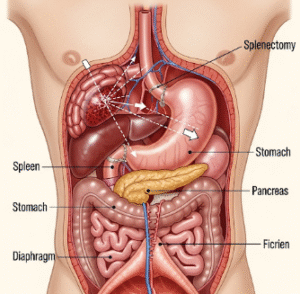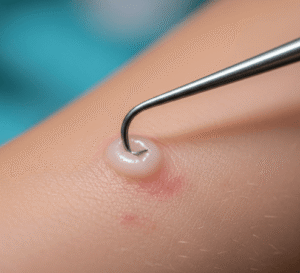Overview
Uremia is a serious medical condition that occurs when waste products build up in the blood due to kidney failure. It is commonly seen in advanced chronic kidney disease (CKD) or acute kidney injury, where the kidneys can no longer effectively filter urea and other toxins. Uremia affects multiple organ systems and can lead to life-threatening complications if not treated promptly with dialysis or kidney transplantation.
What is Uremia
Uremia is a clinical condition that arises when the kidneys are no longer able to excrete urea and other nitrogenous wastes from the blood. This accumulation leads to a toxic internal environment, affecting nearly every system in the body. Uremia is typically seen in end-stage renal disease (ESRD) and represents the final stage of kidney failure. It manifests with a range of symptoms—from fatigue and nausea to seizures and coma—and requires immediate medical intervention.
Symptoms
- Fatigue and general weakness
- Nausea and vomiting
- Loss of appetite
- Confusion, difficulty concentrating
- Muscle cramps and twitching
- Metallic taste in the mouth or ammonia-like breath odor
- Itchy skin (pruritus)
- Swelling in the legs, ankles, or around the eyes
- Shortness of breath
- Chest pain (due to pericarditis)
- Seizures or coma (in severe cases)
Causes
Uremia is caused by the accumulation of urea and other waste products in the bloodstream due to impaired kidney function. Primary causes include:
- Chronic kidney disease (CKD)
- Acute kidney injury (AKI)
- Severe dehydration
- Obstruction of the urinary tract
- Glomerulonephritis (inflammation of kidney filtering units)
- Diabetes mellitus and hypertension, leading to progressive kidney damage
- Toxic exposures, including certain medications or heavy metals
Risk Factors
- Chronic kidney disease (CKD) or dialysis dependence
- Poorly controlled diabetes or high blood pressure
- Advanced age
- Autoimmune diseases (e.g., lupus)
- Heart failure or liver disease
- Family history of kidney failure
- Long-term use of nephrotoxic drugs (e.g., NSAIDs, certain antibiotics)
- High-protein diet or dehydration in patients with impaired kidney function
Complications
- Electrolyte imbalances (e.g., high potassium, low calcium)
- Metabolic acidosis (acid build-up in the body)
- Pericarditis (inflammation of the heart lining)
- Anemia due to reduced erythropoietin production
- Bone disease (renal osteodystrophy)
- Malnutrition and muscle wasting
- Neurological issues, including seizures and coma
- Immune dysfunction and increased infection risk
- Death, if not treated with dialysis or transplant
Prevention
While uremia itself may not always be preventable, its progression and complications can often be managed with proper kidney care:
- Control blood pressure and blood sugar levels
- Regular kidney function monitoring in high-risk individuals
- Avoid nephrotoxic medications and substances
- Stay well-hydrated, unless fluid restriction is advised
- Follow a kidney-friendly diet, low in sodium, phosphorus, and protein (as prescribed)
- Treat infections and urinary tract obstructions promptly
- Quit smoking and reduce alcohol intake
- Adhere to medications for managing underlying kidney conditions
Treatment Options in Korea
South Korea provides advanced nephrology and renal replacement therapy for patients with uremia. Treatment options include:
- Hemodialysis: Blood is filtered using a machine to remove waste and excess fluid
- Peritoneal dialysis: Uses the lining of the abdomen as a filter, allowing for at-home treatment
- Medications:
- Erythropoietin-stimulating agents for anemia
- Phosphate binders and vitamin D supplements for bone health
- Diuretics, antihypertensives, and glucose control agents
- Dietary management: Low-protein, low-sodium, low-potassium diets supervised by renal dietitians
- Kidney transplantation: Offers a long-term solution for eligible patients with end-stage renal disease
- Continuous monitoring: Through outpatient nephrology clinics for stable patients on dialysis
Korea’s kidney care centers integrate modern dialysis technology, transplant services, and multidisciplinary support to provide comprehensive treatment for patients with uremia.


